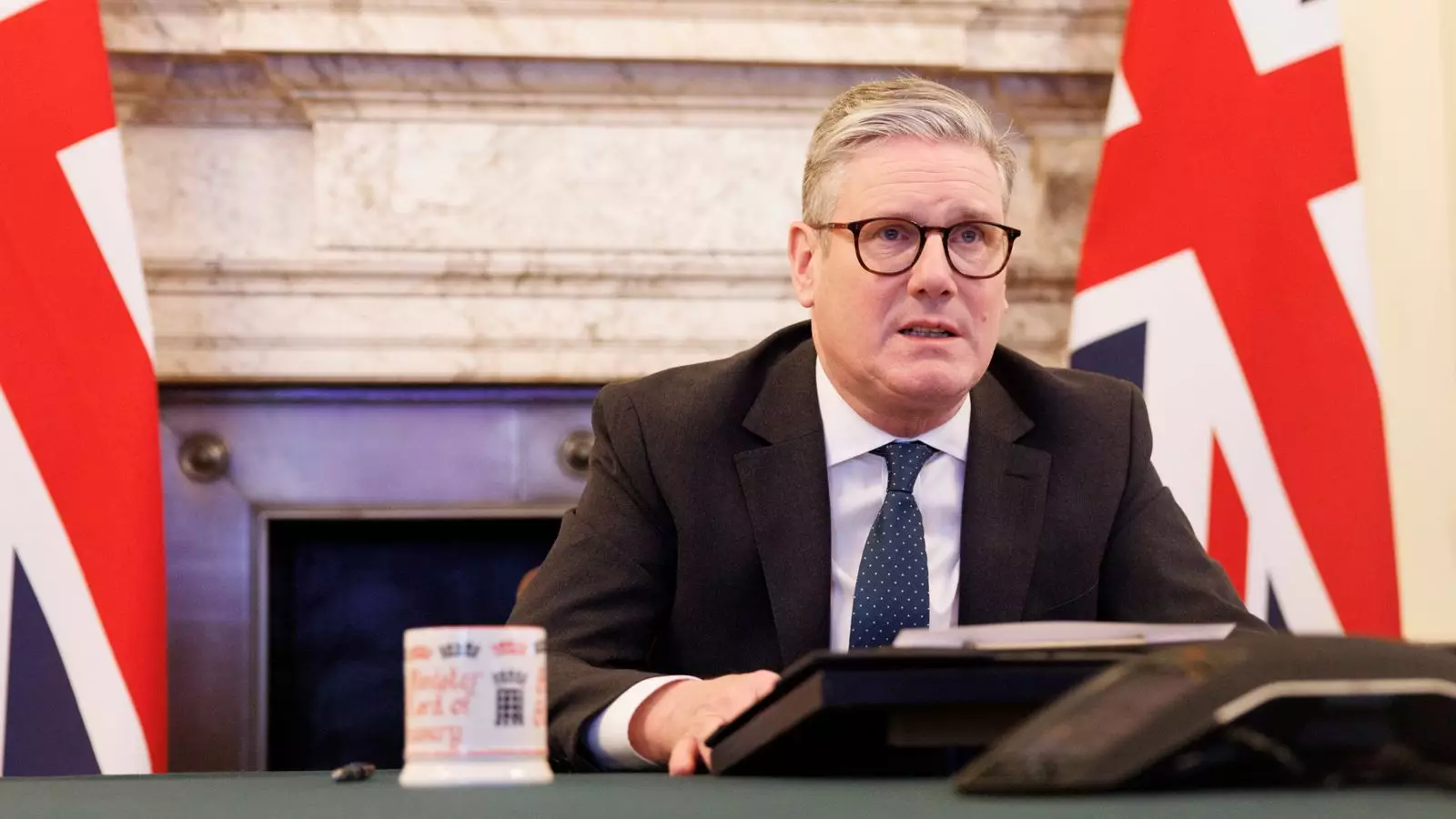In an era characterized by virtual interactions, Sir Keir Starmer’s recent summit of world leaders to address the ongoing war in Ukraine has become a symbol of both hope and turmoil. This virtual meeting, touted as pivotal in forging a “coalition of the willing,” raises the question of whether such digital convenings can genuinely foster progress. Starmer’s insistence on “concrete commitments” from participants emphasizes an alarming realization: the world is increasingly reliant on symbolic gestures that often lack actionable outcomes. While discussions are essential, they can sometimes feel like mere lip service, particularly when they occur in isolation from real-world consequences.
The mere act of gathering influential leaders over a screen does not equate to an effective response to the catastrophic humanitarian crisis unfolding in Eastern Europe. As leaders exchange updates and strategize, one cannot help but wonder: do these dialogues impede substantive action on the ground? The virtual realm can breed complacency—a reassuring façade that disguises the urgency of real-world intervention. What is needed is not just talk, but resolute moves that translate rhetoric into tangible aid and support for Ukraine, rather than delaying critical decisions.
The Limitations of Military Aid
Starmer’s call for increased military support for Ukraine reflects a broader dilemma prevalent in contemporary geopolitics: the over-reliance on military solutions. Military assistance can certainly bolster Ukraine’s defenses, yet one must critique whether arms alone can pave the way to stability. Increased military backing without a sustained diplomatic effort may further entrench hostility and foster a cycle of violence, rather than quelling it. This is particularly troubling when considering the potential for escalating tensions with Russia—an adversary that has made it clear it is not interested in engaging in discussions without pre-conditions that fundamentally undermine leverage.
Furthermore, military aid can often be seen as patronizing. This conditioning reinforces perceptions of Western arrogance, as it tends to overlook the needs and aspirations of the local populace. Countless civilians in Ukraine bear the brunt of a protracted conflict while world leaders negotiate from the comfort of their offices. With mounting pressure on leaders to “do something,” there is a risk of overlooking grassroots perspectives, creating a disconnect between those making decisions and those directly impacted by them.
Economic Pressure: An Effective Weapon?
Starmer’s call for ramping up economic pressure on Russia brings us to another contentious point: can sanctions serve as an effective tool for diplomacy? Historically, sanctions have shown mixed results; while they may exert immediate pressure, their long-term efficacy in achieving meaningful results remains questionable. The digression into economic warfare could likewise entrench divisions rather than foster cooperation, leading to further alienation of moderate voices within Russian society.
Critics of economic sanctions argue that these measures disproportionately affect the working class while those in power often find ways to circumvent restrictions. It’s paramount to ask who truly benefits from economic pressure—and who ultimately suffers. If our collective goal is to bring an end to the bloodshed in Ukraine, we must scrutinize whether pursuing economic isolationism genuinely serves the best interest of peace.
The Credibility Gap of Global Leadership
Starmer’s statements claiming the urgency of immediate action against Putin’s “barbaric attacks” underscore a significant issue: the credibility of global leaders is increasingly under scrutiny. When leaders like Starmer deliver impassioned speeches devoid of real substance or backing, their message can be rendered ineffective. Trust in global institutions is waning; when urges for action are voiced but not followed through, it leads to skepticism about the effectiveness of such alliances.
Moreover, the fragmented nature of international response—with nations like the United States and various European allies each taking differing stances—complicates cohesion and unity. For any peacekeeping mission to be credible, a collective front that prioritizes human rights and international law must be established. The lack of consensus among world leaders raises concerns: is there genuine commitment to peace, or are these merely tactics to appease a discontented public?
The situation demands more than talk; it requires authentic action that translates discussions into lasting solutions. Ukrainian lives hang in the balance, and leaders must confront the grim realities of modern diplomacy—with a renewed commitment to building a framework for peace that prioritizes cooperation over competition. The era of virtual summits must yield to a new age of tangible commitments that reflect a genuine desire for meaningful resolution and stability.

